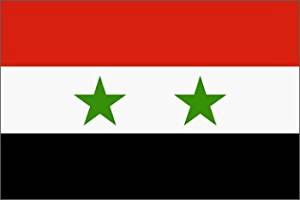MANAMA: Syria is not ready to takeback refugees and internally displaced people, thanks to broken law and order situation, prevalent sense of insecurity among its citizens, lack of governance, deteriorating economy and absence of property documentation.
This was revealed by Dr Nasser Yassin, Director of Research, Issam Fares Institute for Public Policy and International Affairs, American University of Beirut, Lebanon during a workshop held at DERASAT.
The unabated war over the past almost one decade has reversed this country’s 65 years of development, he said.
The Bahrain Center for Strategic, International, and Energy Studies “Derasat” organised a workshop to discuss the issue of the safe return of Syrian refugees.
The workshop was aimed at presenting the situation of the refugees in host countries as well the conditions inside Syria and whether those conditions permit a sustainable return. More importantly, the workshop presented a platform for Western countries to clarify their position on the return of the refugees.
Talking about the thrust of refugees willing to repatriate, Dr Nasser said only 2000 Syrian returned to their homeland out of a million plus currently hosted by Lebanon.
The notion that refugees might not be interested to go back, he said that following the return campaign a fraction of total number of refugees opted to go back to their homeland reason being that country’s entire system is broken down. “Most of returnees either killed or harassed by the intelligence and security officials which speaks volume of negative feedback of the return campaign.”
The half day workshop attracted experts and senior officials from the UN ESCWA, UN Habitat, World Bank, research centers, non-governmental organizations as well as government officials.
“We invited individuals who can speak objectively about the situation and although these discussions are not negotiations nor peace talks, we would like to see positive outcomes resulting from it,” On the choice of speakers and attendees’ Dr Shaikh Abdulla Al Khalifa, Chairman of the Board of Derasat said.
The workshop commenced with keynote remarks from Derasat’s Chairman, which focused on the importance of holding meetings such as this to give the opportunity for those with different outlooks to confer and present their positions, on that note he commented, “We are handling a very specific issue and we want the message and the discussion to be focused around it, which is to examine the policies available and how they can be implemented to maximize the help offered to the refugees.”
The envoys helped clarify the western position on the issue of return. The UN Security Council resolution 2254 (2015) states the need to build conditions for the safe and voluntary return of refugees, however, there is no clear policy on how this will be implemented.
The workshop discussed the diverse perspectives on the issue of return as well as determining the Western position in this regard. On this, Mr. Joel Rayburn, Deputy Assistant Secretary of State, Special Envoy to Syria commented: “We are here to dispel myths about U.S. policy and to reiterate that the US wants Syrian refugees ultimately to return to their homes in Syria. However, their return to Syria must be safe, voluntary, and dignified, and must meet with the necessary conditions in order for returns to be sustainable.”
The workshop presented research conducted by several organizations on the issue of return.
“In our programme we research the different elements needed to build a better future for the Syrians once there is a political settlement. In this platform we presented our research on elements of an inclusive and sustainable peace and reconciliation. Regardless what kind of political solution is brought forward, a real inclusive and sustainable peace cannot be found unless residents of the same city, the same town and the same neighborhood from different backgrounds and with different political views learn to live together again. An important part of our research tackles this very important issue,” Ms. Riwa Nasreddine the Manager of the National Agenda for the Future of Syria programme under the UN ESCWA said.
The workshop was concluded by Dr. Shaikh Abdulla Al Khalifa who reiterated Derasat’s position as a platform for dialogue to put forth important policy recommendations for the region towards promoting peace and stability.



